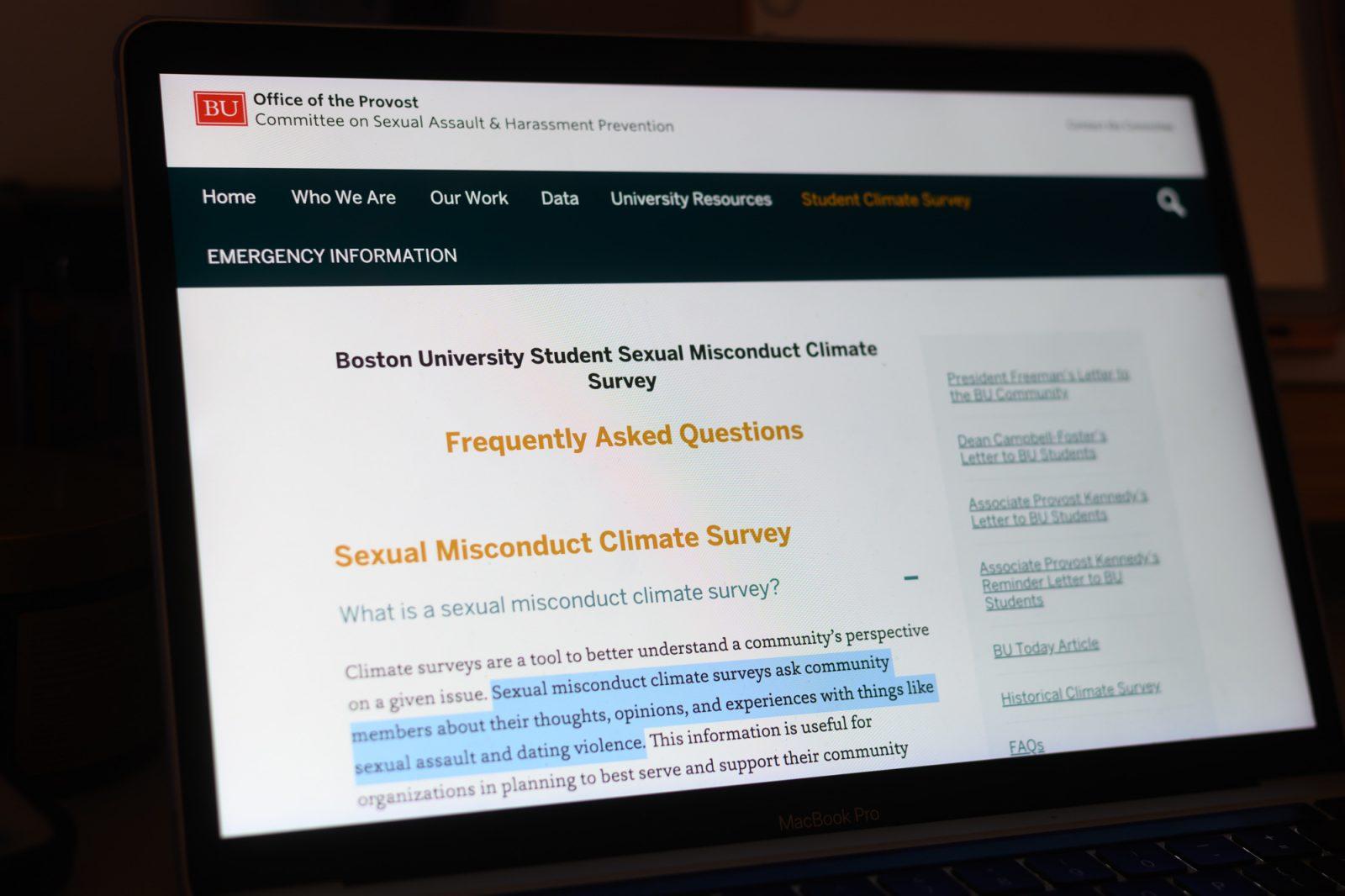Boston University collected responses from a student sexual misconduct survey in late February, which provides data on student experiences and offers insights to improve resources for sexual misconduct.
In creating the survey, BU worked with Rankin Climate, an external college consultancy firm. According to the Committee on Sexual Assault & Harassment Prevention website, Rankin Climate was tasked with developing the survey and analyzing its results.
Rankin CEO Kevin Swartout said BU was a unique institution to work with because it’s “one of the few campuses that already had a group specific to Campus Sexual Misconduct Prevention already in place when they started working with us.”
The survey not only measures the percentage of sexual misconduct cases among students, he said, but also collects data on climate, including experiences with sexual misconduct resources, how sexual misconduct may have impacted a student’s academic life or whether or not a student decided to report their case to the university.
Swartout said Rankin used BU’s already existing group of university stakeholders to create and implement the survey, and will now consult them to work through the challenges highlighted by the survey.
“You really need that on-the-ground understanding of BU culture and the BU experience that folks in that group have, to really know what’s gonna work,” he said.
This survey puts the university in compliance with the state’s 2021 Campus Sexual Assault Law, which, requires higher education institutions to conduct a campus sexual misconduct climate survey at least once every 4 years.
Suzanne Kennedy, the BU associate provost for special projects & emerging priorities and a member of BU’s Committee on Sexual Assault & Harassment Prevention said the university last conducted a similar survey in 2019.
“It’s really to help inform the work of the university, to understand the experiences of our students, which includes the prevalence of sexual misconduct, as well as students’ engagement with campus resources,” she said.
Rankin Climate uses a research data security description and protocol that will protect the identity of participants who are providing this sensitive information, according to the Committee on Sexual Assault & Harassment Prevention website. Using a third party for a sensitive subject like culture climate is “likely to yield higher response rates and provide more credible findings.”
“It’s a sensitive topic, and not often do people want to feel like that data is going into the university administrative structure,” Kennedy said.
Following the survey opening on February 26, the administration sent an incentive email, offering rewards to students who completed the survey.
The administration wrote that in addition to the standard $20 incentive for completing the survey, they will also “have a random drawing at the conclusion of the survey for additional prizes including; 15 $100 Amazon gift cards and scheduled time with BU’s community resource dogs.”
“We really are all in this together,” Kennedy said. “Understanding how [students] can engage in a particular situation to potentially stop incidents of sexual misconduct is important.”
Rankin Climate and BU are currently analyzing the data, and Kennedy said they are looking forward to having a report analysis by next fall semester.
























































































































